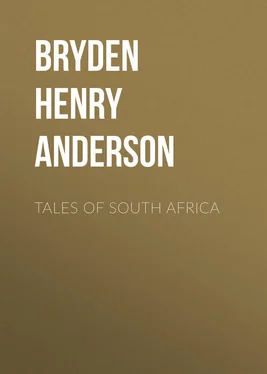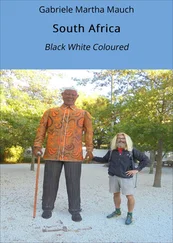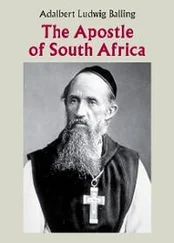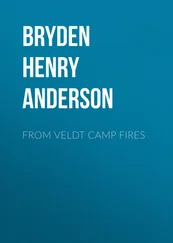Henry Bryden - Tales of South Africa
Здесь есть возможность читать онлайн «Henry Bryden - Tales of South Africa» — ознакомительный отрывок электронной книги совершенно бесплатно, а после прочтения отрывка купить полную версию. В некоторых случаях можно слушать аудио, скачать через торрент в формате fb2 и присутствует краткое содержание. Жанр: foreign_antique, foreign_prose, foreign_language, на английском языке. Описание произведения, (предисловие) а так же отзывы посетителей доступны на портале библиотеки ЛибКат.
- Название:Tales of South Africa
- Автор:
- Жанр:
- Год:неизвестен
- ISBN:нет данных
- Рейтинг книги:4 / 5. Голосов: 1
-
Избранное:Добавить в избранное
- Отзывы:
-
Ваша оценка:
- 80
- 1
- 2
- 3
- 4
- 5
Tales of South Africa: краткое содержание, описание и аннотация
Предлагаем к чтению аннотацию, описание, краткое содержание или предисловие (зависит от того, что написал сам автор книги «Tales of South Africa»). Если вы не нашли необходимую информацию о книге — напишите в комментариях, мы постараемся отыскать её.
Tales of South Africa — читать онлайн ознакомительный отрывок
Ниже представлен текст книги, разбитый по страницам. Система сохранения места последней прочитанной страницы, позволяет с удобством читать онлайн бесплатно книгу «Tales of South Africa», без необходимости каждый раз заново искать на чём Вы остановились. Поставьте закладку, и сможете в любой момент перейти на страницу, на которой закончили чтение.
Интервал:
Закладка:
It was not long before they came to the dead zebra, which lay in a little opening from the river, surrounded by dense bush. Kwaneet went first. He walked up to the carcase and stooped to examine it. As he did so there was a fierce, guttural growl from the bush nearest to him, a lightning-like flash of a yellow body, and in an instant he lay there beside the zebra, a great yellow-maned lion standing over him. The brute stood with bared teeth, snarling in fiercest wrath. Kwaneet had driven him from his prey that morning, it is true, but he had bided his time, and now his revenge had come. For once the Masarwa had made a miscalculation. As a rule the lion, driven from its prey in daylight will steal away without showing fight. This particular lion happened to be very hungry and very daring; there were not many hunters in that country, and so Kwaneet had suffered.
But in the instant that the lion made his rush and stood over the Masarwa, many things thronged into Nakeesa’s brain. Her man there, from whom she had received so many kindnesses, and with whom she had lived so happily – nay, for a Bushwoman, so merrily – lay there in dire peril. Surely his life was better than hers. Surely she could strike a blow for him? Her babes, herself, all other things, were forgotten; she must save Kwaneet, the best, and kindliest, and bravest hunter of all that wilderness. She had Kwaneet’s assegai upon her shoulder. With this she ran in upon the lion, and with all her force drove home the blade deep into its ribs.
The wound was not a mortal one – at the moment – and the enraged brute turned instantly at Nakeesa, struck her to earth, and then fastened his teeth, with a hideous, crunching sound, deep in the bones of her neck. For a good half minute it continued this deadly work, then, noticing the year-old child, crying in the back of the woman’s cloak, it gripped that also between its teeth, and put an end to it. Meanwhile Kwaneet, almost uninjured by the lion’s first rush, had crawled away unnoticed, and, with Nakeesa’s elder lad, regained a place of safety.
So Nakeesa lay there dead by the river, her days of toil and of pleasure all ended. She had shown two great extremes of evil and good in her nineteen years of existence. She had refused to save the life of Sinikwe (the man who treated her ill, and whom she loathed) from the puff-adder – an act as good as murder, most men will say. And for Kwaneet, who had treated her with some kindliness, and whom she loved with as much love as a Masarwa is capable of, she had given her whole being – life itself. She could do no more.
As for Kwaneet, having satisfied himself, without much emotion, at a later period of the day, of the death of his wife and child, and having taken as much zebra meat as the lion had left, he went his way. Nakeesa’s elder child – now three years old – was, of course, a perfectly useless encumbrance to him. He therefore sold the boy to some Batauana people for a new assegai, and soon after returned to his desert life.
Nakeesa’s bones are long since scattered, broken, and devoured by the beasts of the desert; but her skull, a little, round, smooth skull, lies there, yellow and discoloured, in the far swamps of the Tamalakan river. Her poor, squalid, desert love-story can scarcely be said to point a moral, or even adorn a tale. It merely affords one more instance of the complex nature of the human heart – of human emotions – even in the crudest and most savage aspect of African life.
Chapter Three.
A Desert Mystery
One of the cheeriest of Christmas Days was that spent on the pleasant banks of the Limpopo River, not many years since. Two hunting friends were trekking through Bechuanaland towards the Zambesi, and it happened by great good fortune that, just at the junction of the Notwani and Limpopo Rivers, they found outspanned the wagons of two hunters and traders southward bound from the far interior. These men were travelling down-country with heavy loads of ivory, ostrich feathers, skins, and other produce, and they had with them a big troop of cattle obtained in barter. In these fitful encounters in the African wilderness men are always well met, and it needed no pressing from the new-found acquaintances to induce them to outspan together, and combine forces for Christmas cheer and Christmas chatter. A brief council of war soon settled the all-important question of commissariat. Smallfield, the younger of the traders, had shot a good rooibok the evening before, which furnished venison for all, and they had already baked a store of bread from fresh Boer meal. The new-comers, on their side, freshly equipped from Kimberley, could provide tinned plum-puddings, tinned tomatoes, peas, jams, and other luxuries, including dried onions, most precious of vegetables in the veldt; and they had further some excellent Scotch whisky. They had, besides, half a dozen brace of guinea-fowl and pheasants, shot during the day in the jungles bordering the river, so that all the concomitants of a capital African banquet were ready to hand.
Just at sundown the preparations were complete, and no merrier party, you may swear, ever sat down to their Christmas meal. They supped by the light of a roaring camp-fire, eked out by a lantern or two placed on the cases that served for tables. The servants were enjoying themselves at another fire at a little distance; the oxen lay peacefully at their yokes; the wagons loomed large alongside, their white tents reflecting cheerfully the ruddy blaze of the fire; the night was perfect, still and warm, and the stars, like a million diamond sparks, scintillated in the intense darkness of the dome above. What wonder, then, that all felt happy and contented?
Supper at length over, the coffee-kettle was banished to obscurity and the whisky produced. The travellers lit their pipes and toasted their absent friends and each other, and then ensued a long and delightful evening.
The traders were two capital, manly fellows, well versed in the sports and toils and pleasures of the far interior; the new-comers themselves had been in the hunting veldt before, and they had all, therefore, many things in common. Many and many a yarn of the chase and adventure they exchanged; many a head of gallant game they slew again by the cheerful blaze. The up-country trekkers mentioned that they thought of trying a new bit of veldt, rather away from the beaten track, if but they could find water in the desert, and good guides and spoorers – they were bent on entering the wild and little-known tract of country north of the road to the Mababi veldt. “Well,” said the elder of the traders – Kenstone was his name – “you’ll find game there after the rains – giraffe, gemsbok, hartebeest, eland, koodoo, roan antelope, and perhaps a few elephant, or a rhinoceros or two. But it’s a wild, barren veldt; the country as you go north is a good deal broken, and, unless the rains have been good, water is terribly scarce there. As for myself,” (gazing rather moodily at the camp-fire, and stroking his thick, brown beard), “I once went into that veldt, and never wish to see it again. I had a most uncanny adventure there – an experience I never again wish to repeat if I live to a hundred. In all the years (and they are close on five-and-twenty now) I have been in the hunting veldt, I never spent so incomprehensible and horrible a time as the few days I am thinking of. Ugh!” and the big man shivered as he spoke.
Naturally the curiosity of his audience was at once excited. The younger trader, Smallfield, spoke first.
“Why, George,” he said, “I never heard you speak of that country. I never even knew you had been in it. What’s the yarn? It must be something out of the common if it gives you the blues. You’re not sentimental, as far as I remember.”
“No, Jim,” returned Kenstone, “I never mentioned the thing to you or to any one else, bar, perhaps, two or three folks. It’s eleven years gone since it all happened. My old partner, Angus (he’s down in the Colony now), who was with me at the time, knows all about it, and I reported some of the circumstances to a Transvaal Landdrost when we got back. Otherwise I have never talked about the matter – I should only be chaffed, and it’s not a pleasant topic at the best of times. It gave me a very nasty schrijk (Fright) at the time, I remember. However, it’s all far enough away now; if you and these gentlemen would like to hear the yarn, as it’s Christmas-time, and we’re so well met, why, I’ll break my rule and tell you all about it. And mind, what I tell you are solid facts. You know I don’t ‘blow,’ Jim, or spout tall yarns for the benefit of down-country folks or bar-loafers at Kimberley. What I saw I saw, and, please God, hope never to see again.”
Читать дальшеИнтервал:
Закладка:
Похожие книги на «Tales of South Africa»
Представляем Вашему вниманию похожие книги на «Tales of South Africa» списком для выбора. Мы отобрали схожую по названию и смыслу литературу в надежде предоставить читателям больше вариантов отыскать новые, интересные, ещё непрочитанные произведения.
Обсуждение, отзывы о книге «Tales of South Africa» и просто собственные мнения читателей. Оставьте ваши комментарии, напишите, что Вы думаете о произведении, его смысле или главных героях. Укажите что конкретно понравилось, а что нет, и почему Вы так считаете.












